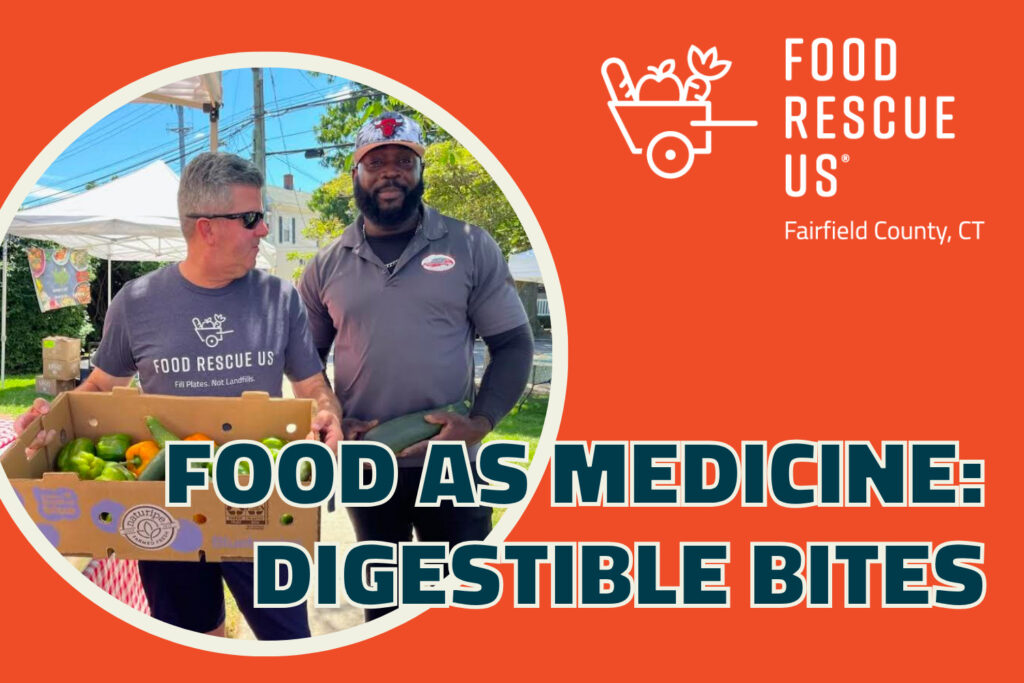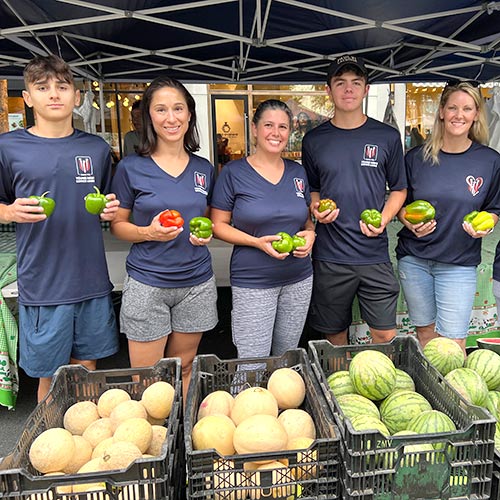Food as Medicine: Digestible Bites (with a side of Local Bites) – September 2023
DIGESTIBLE BITES
The shorter version:
- Almost every locally grown vegetable in Connecticut is in season right now!
- When doctors and health-care providers “prescribed” fruits and vegetables, patients lost weight and experienced significantly lowered blood pressure.
- A UConn grad built a hydroponic garden on the roof of Hartford Hospital to combat food insecurity.
- Making plant-based meals the default in hospital meals reduced food-related greenhouse gas emissions by 36% in NYC!
The longer version:
Did you know that just about every locally grown vegetable in Connecticut is considered to be in season right now? Check out the Connecticut Department of Agriculture’s Crop Availability Calendar and get inspired! Please read on for Local Bites below for a list of CT farmers’ markets that participate in the Farmers’ Market Nutrition Program.
Fruit and vegetable ‘prescriptions’ may lead to better heart health
When doctors and health-care providers prescribed fruits and vegetables (F&V), patients ate more produce, lost weight and experienced significant reductions in blood pressure, according to a new study. The study’s conclusion states: “In this large, multisite evaluation, produce prescriptions were associated with significant improvements in F&V intake, food security, and health status for adults and children, and clinically relevant improvements in glycated hemoglobin, blood pressure, and BMI for adults with poor cardiometabolic health.”
UConn grad builds hydroponic garden on roof of Hartford Hospital to combat food insecurity
Hartford Hospital’s new rooftop garden was designed by LEVO, a Connecticut firm founded by a 24-year-old UConn graduate, Christian Heiden. “Bell peppers, tomatoes, and beans hang from PVC pipes and look ready for harvest. The hospital says too many urban patients don’t have access to fresh produce and that affects health outcomes. The hydroponic garden opened just a few weeks ago and what’s grown here will be given away. Heiden designed the system so that the water recycles from a reservoir at the base up through pipes and eventually cascades back down to the reservoir.”
In the article, Hartford Hospital’s food as medicine consultant David Juros commented, “Food insecurity impacts health. It’s becoming more and more important to really get to the root cause of some of the chronic diet related diseases and help patients who don’t have the ability to be able to get the food they need for their families. We harvested 175 heads of lettuce two weeks ago and gave those out over the past two weeks to all of our patients.”
How New York’s Public Hospitals Cut Carbon Emissions: More Vegetables
Making plant-based meals the default has reduced food-related greenhouse gas emissions by 36 percent, the mayor’s office said. Just don’t say “vegan.”
NYC Health + Hospitals, the country’s largest municipal health system, has made plant-based food the default for inpatient meals. That means the food contains no meat, dairy or eggs. If a patient doesn’t like the first option, the second offering is also plant-based. Anyone who wants meat has to make a special request.
According to the mayor’s office, one year after it made those sweeping changes, the hospital system has reduced its food-related carbon emissions by 36 percent.
LOCAL BITES
There are nearly 100 farmers’ markets in Connecticut. The Farmers Market Nutrition Program (FMNP) helps SNAP/WIC participants, seniors, and disabled participants to purchase eligible products from farmers using an app and/or a debit card to purchase fresh, unprocessed fruits, vegetables, eggs, and honey.
Here is a map of all the farmers’ markets throughout the state and an alphabetical list by name, also noting the market days, times, addresses, and what benefits are accepted.
Thanks,
Food Rescue US – Fairfield County Food as Medicine Liaison
If you enjoyed this post, you might also like last month’s Food As Medicine post.




